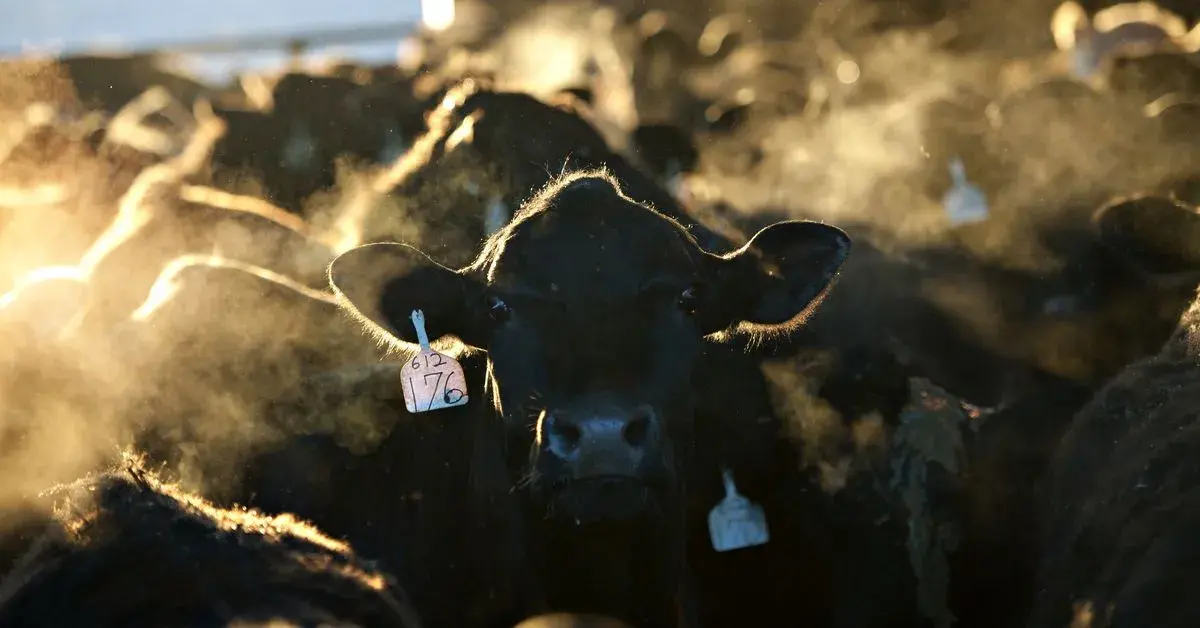I mean. Even if true 10% reduction does not exactly bring it to chicken levels.
the company’s Brazen Beef brand
The greenwashing is literally brazen.
Also, who is eating 60lbs of beef a year? More than a pound a week?
A whole swath of Americans eat a pound in a sitting. 6oz is a standard portion, but most people ignore that. Most restaurants have 8oz as the smallest steak. Hell, I was just at a place with a 40 fucking ounce ribeye in the menu. Plus the fuck tons of ground beef a lot of people eat, especially in casserole situations
Seriously, this. I get stink eye because I portion no more than 4oz of beef per serving per person.
I would love to have options for ground beef with 50% or more replaced by mushrooms. I’ve had burgers made like this and they were better than a fully beef version. Make this widely available, and cheaper than 100% beef, and I could see that accepted faster than the highly processed non meat options like impossible or beyond brands.
That sounds super tasty. I like the non meat stuff occasionally, but yeah they are highly processed. Plus we recently discovered that they tend to trigger my partner’s IBS.
🤖 I’m a bot that provides automatic summaries for articles:
Click here to see the summary
Tyson claims that its new “Climate-Smart Beef” program, to be supported with taxpayer dollars, has managed to cut 10 percent of the greenhouse gas emissions from a tiny fraction of its cattle herd.
The 1.5 billion cows farmed worldwide for cheeseburgers and ice cream sundaes each year accelerate climate change in three main ways: they eat grass and/or grain, like corn and soy, causing them to burp out the highly potent greenhouse gas methane; they poop a lot, which releases the even more potent nitrous oxide, as does the synthetic fertilizer used to grow the grain they’re fed; and they take up a lot of land — a quarter of the planet is occupied by grazing livestock, some of which could be used to absorb carbon from the atmosphere if it weren’t deforested for meat production.
Among other practices, Tyson also lists “pasture rotation,” which entails moving cattle around more frequently with the goal of allowing grass to regrow, which can provide a number of environmental benefits, but many climate scientists are skeptical it can meaningfully reduce emissions.
When asked what benchmark the USDA uses to approve a 10 percent emissions reduction claim, the agency again said I would need to file a FOIA request, and didn’t answer questions about its verification process in time for the deadline for this story.
Meat and dairy production account for at least 14.5 percent of global greenhouse gas emissions, leading many environmental scientists to conclude that eating more plant-based meals is one of the best actions people can take to fight climate change, and that governments could do much more to steer us in that direction.
In a recent online survey, conducted in partnership with market research consultancy firm Humantel, Vox polled consumers about which parts of the food sector they think contribute most to climate change.
Saved 80% of original text.
Important quote missed in the summary:
But even if we give Tyson and the USDA the benefit of the doubt, there’s a stubborn truth about beef: It’s so high in emissions that it can never really be “climate-friendly.”




